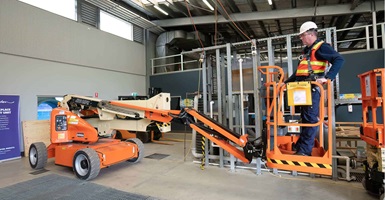Benefits of lifelong learning
In today's rapidly changing world, it is more important than ever for employees to engage in lifelong learning. The benefits of lifelong learning are numerous, ranging from personal growth to improved job performance and increased earning potential.
One of the key benefits of lifelong learning is skills development.
As technology and industry progress, new skills and knowledge become essential to succeed. According to a global PwC Survey, 39% of workers said they’re concerned about not getting sufficient training in digital and technology skills from their employer.
By participating in continuous learning and development opportunities, employees can ensure that they have the skills, knowledge and abilities they need to be successful in their careers now and into the future.
Another benefit of lifelong learning is that it can lead to greater job satisfaction and subsequently, higher job performance. When employees feel that they are learning and growing in their roles, they are more likely to be motivated and engaged at work.
Nida Iqbal, Chisholm Lecturer, Higher Education College and Chair of the Chisholm Scholarship, Research and Ethics Committee emphasises, “lifelong learning can assist both the employer and employee. It allows employees to be more ethical and job ready and assists employers with a sustainable and stable workforce while improving the reputation of the organisation.
By investing in learning and development, employers can increase employee retention and build a more skilled and knowledgeable workforce. Plus, lifelong learning can lead to increased earning potential and better career opportunities for employees.
Principles of lifelong learning
Lifelong learning principles are simple, yet meaningful.
It involves a commitment to professional and personal growth, and a willingness to embrace new challenges.
Lifelong learning should be continuous, tailored to the individual and relevant.
Continuous learning helps employees stay up-to-date with changes in their field and is a proactive step in staying ahead of competition. It shifts viewpoints, as it opens up your mind and builds on existing knowledge. The more one learns the better they get at seeing different perspectives which enhances critical thinking.
Tailored learning allows employees to focus on the areas they need to improve or develop. This ensures that the learning experience is unique to their individual wants and needs which also includes learning mode preference – in a classroom or online.
Tailored learning supports employers as well, as it reduces specific organisational skills gaps and training return on investment is maximised.
Relevance ensures that the learning is directly applicable to the employee's job and goals. Which translates to the employee feeling confident and valuable in their organisation, coupled with the realisation that their daily work is contributing to the company’s mission.
Succeeding with lifelong learning
Nida says, “to be successful in implementing employee learning, organisations need to provide support to maximise uptake. For example, allowing time away from the workplace, or having the option to study online and on-demand. Flexibility in accommodating employee’s schedule is welcomed and promotes a culture of care and respect for an employee’s work-life balance.”
Learning in the workplace is not only about acquiring new skills, but also about staying current with industry developments, innovations and trends. With a focus on continuous improvement, companies can gain a competitive advantage and increase their overall success.
Lifelong learning is not an option but a necessity in today's ever-evolving innovative workplace.
To provide your employees with the tools and opportunities they need to succeed, contact a Chisholm Industry Specialist to discover which courses can be tailored for your business and employees.


